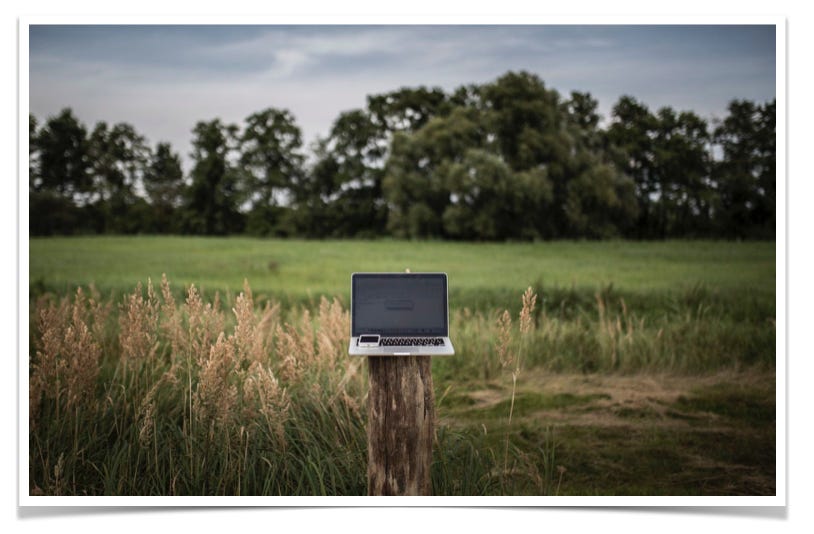The Broadband Effect
How an 85% spike in Nelson County homes sales could be a sign of the future of life in Central Virginia
During the Super Bowl last weekend, while a record number of sports fans placed their bets on the game [thanks to the wide-spread legalization of sports betting, including in Virginia], American businesses made their bets on the future with their commercial messaging, and apparently it's one that requires a lot of bandwidth.
In addition to a general theme of embracing the new -- electric cars, public space travel, fast food places embracing sustainability -- almost all the high-priced ads told stories about the internet and cell phone networks providing liberation and independence, from food delivery apps, car delivery apps, online tax filing, online shopping, computer equipment, a glucose-monitoring app, an online job site, online investing apps, online tax filing, streaming services, cell phone carriers offering strong signals, and an online freelancer marketplace. Squarespace, which allows you to create your own website, even flipped the script on a classic Dolly Parton song, encou…



